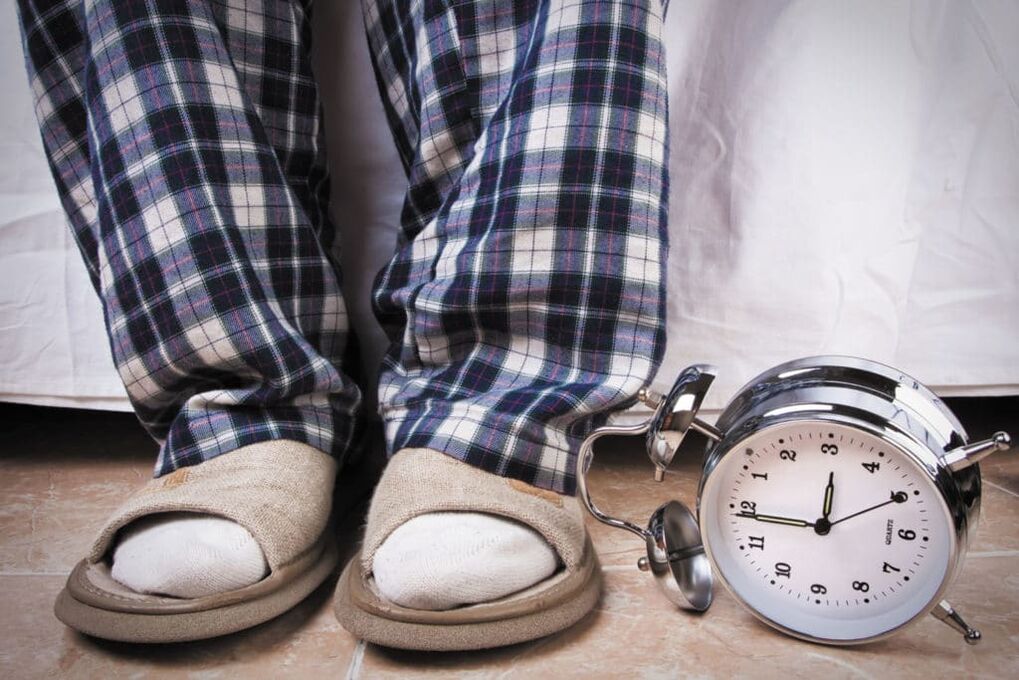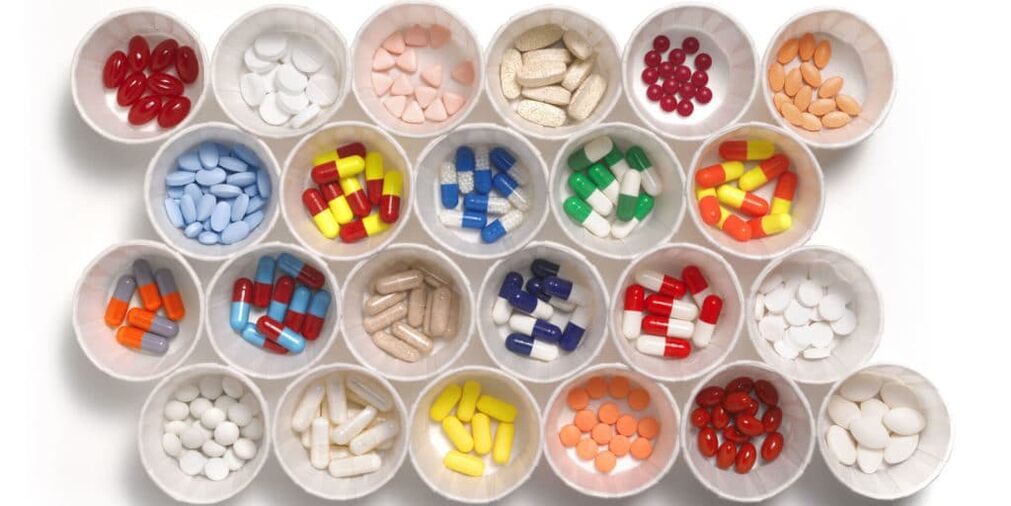Prostatitis is an inflammatory disease of the prostate gland that mainly affects older men. According to statistics, almost 40% of men over the age of 50 are diagnosed with some form of the disease. Congestive prostatitis is a non-infectious inflammation of the prostate caused by a violation of organ trophism.
What is congestive prostatitis?
Congestive prostatitis develops due to disruption of trophic processes in the prostate gland and pelvic organs. Trophism refers to all metabolic processes occurring in the organs - blood circulation, lymph flow, the dynamics of prostate secretion.
The disease is characterized by a number of specific symptoms, the appearance of which is caused by edema of the inflamed organ. Due to the stagnation of secretion in the prostate gland, its lobules are not completely emptied, which leads to inflammation and enlargement of the body. As a result of these processes, the prostate gland compresses the bladder and urethra, which explains the appearance of symptoms of the disease.
Unlike the acute form of inflammation caused by pathogens, congestive prostatitis can persist for many years without severe symptoms. During this period, the trophism of the prostate gland gradually deteriorates, the body is depleted, and over time, the disease manifests itself with a sudden exacerbation.
Congestive prostatitis is usually diagnosed either by accident, during a routine examination by a urologist, or during exacerbations, when a man has obvious symptoms.
The disease requires long-term complex treatment. The prognosis for recovery depends on the timely detection of congestive prostatitis. In some cases, men live with chronic inflammation for decades, forcing them to undergo regular treatment to prevent the disease from getting worse.

Stagnant prostatitis develops asymptomatically over the years. His treatment will last a long time.
Reasons for development
Congestive prostatitis or chronic non-infectious prostatitis is a direct result of wrong lifestyle choices. Disorders of metabolic processes in the prostate develop over a long period of time. The causes of the disease are:
- hypodynamics;
- obesity;
- malnutrition;
- abstinence from sexual intercourse;
- chronic stress;
- bad habits;
- flebeurism;
- chronic constipation.
The main enemy of prostate health is physical inactivity. Lack of physical activity leads to deterioration of blood circulation in the lower body, including the pelvic organs, which over time leads to thickening of prostate secretion and the development of inflammatory processes.
Excessive physical inactivity is a direct route to prostatitis. It is not believed that congestive prostatitis is a disease of office workers, because sitting at a table for a long time leads to disruption of blood circulation in the pelvis and prostate gland.
Chronic stress, decreased immunity and hypothermia in the lower body are indirect causes of prostatitis. With a stagnant, slow inflammatory process, these factors exacerbate the symptoms of the disease.
Another enemy of men's health is chronic constipation. Difficulty, irregular bowel movements, dense stools passing through the intestines irritate the prostate. As soon as the bowel is emptied, the trophism is disrupted. With rare constipation, this is not dangerous, but regular defecation disorders cause prostate irritation with the subsequent development of prostatitis.

Congestive prostatitis is a common problem among office workers.
Why is prostatitis dangerous?
Congestive prostatitis is accompanied by specific symptoms that significantly impair a man's quality of life. In addition to constant anxiety, the disease develops, which leads to the development of dangerous complications.
First of all, the potential suffers. Disorders of blood circulation, thickening of secretions and dysfunction of the prostate gland lead to sexual dysfunction, discomfort and pain. Over time, the problem worsens, so along with the weakening of libido, erectile dysfunction occurs. Not enough blood flows to the penis, which leads to weakening of the erection and threatens erectile dysfunction.
Congestive prostatitis can cause infertility in men.
A fairly common complication of slow inflammation is urinary excretion, which can lead to kidney infection and pyelonephritis.
Lack of timely therapy for congestive prostatitis can lead to the formation of stones in the prostate gland, the removal of which often requires surgical intervention.
Symptoms of the disease
Symptoms of congestive prostatitis are manifested by impaired urination. In addition to the exacerbation of the disease, there is heaviness in the bladder, frequent urge to use the toilet and a decrease in urinary pressure. Occasionally there may be pain in the bladder, which spreads to the lower abdomen and perineum. The pain is spastic, spasms appear and subside.
Men with congestive prostatitis have problems with potency and ejaculation. In this case, it is possible to increase the duration of sexual intercourse, as well as premature ejaculation. Climax is accompanied by pain in the urethra.
With congestive prostatitis, the symptoms of inflammation of the prostate gland intensify during exacerbation. This occurs against a background of decreased immunity, severe stress, overwork or hypothermia. The symptoms are acute. The number of urination calls can be up to 8 times per hour. Emptying the bladder does not bring comfort, because it feels heavy and full. The pain syndrome is acute, there is a feeling of heaviness in the rectum caused by edema of the prostate gland. In rare cases, the appearance of hematuria - blood in the urine is possible. Pain and severe burning sensation in the urethra after urination and ejaculation.
Congestive prostatitis is not a bacterial inflammation, so an increase in temperature with this form of the disease is extremely rare. However, there are common signs of disturbance in the perineum due to constant discomfort - drowsiness, irritability and loss of strength. Often, the course of congestive prostatitis is aggravated by insomnia due to increased desire to use the toilet at night and in the evening due to swelling of the prostate.

Frequent urination does not provide comfort or sleep
Diagnostics
Congestive prostatitis is diagnosed by a urologist with a rectal examination of the prostate gland. This is done with a prostate or TRUS massage.
Ultrasound diagnosis is considered a non-informative method because it indicates the presence of inflammation, but not the nature of its development. For this reason, the most informative is the analysis of prostate secretion. Due to the nature of changes in the composition of prostate secretion, congestive prostatitis and its complications are diagnosed.
An additional MRI of the prostate is prescribed to rule out adenomas and other disorders.
The principle of treatment
Treatment of congestive prostatitis is a long process. Therapy aims to eliminate inflammation and edema, improve urodynamics and restore metabolic processes in the body.
In addition to specific therapy, patients are prescribed diet, exercise therapy and physiotherapy. All these methods have one goal - to normalize the flow of prostate secretions and improve blood circulation to the body.
Drug therapy
Treatment of congestive prostatitis consists of symptomatic and specific therapy.
Symptomatic treatment includes the use of antispasmodics, analgesics and non-steroidal anti-inflammatory drugs. Such drugs can relieve pain and discomfort, improve urinary excretion, but do not affect the functionality of the prostate gland.
Unlike infectious prostatitis, with congestive inflammation in the secretion of the prostate gland, no pathogenic agent is detected, so antibiotic therapy is not appropriate.
Used for treatment:
- alpha blockers;
- antispasmodics;
- non-steroidal anti-inflammatory drugs;
- phytopreparations;
- rectal suppositories to restore prostate function.
Taking alpha-blockers helps to improve urodynamics. These drugs have a muscle relaxant effect, reduce the tone of the bladder, which facilitates urination. Treatment of congestive prostatitis with these drugs is applied in a short course due to the large number of side effects.
Non-steroidal anti-inflammatory drugs are used in the form of tablets or rectal suppositories to relieve inflammation. Treatment is not more than a week, 1-2 suppositories per day. Reduces inflammation and swelling of the prostate gland, as well as relieves pain. Injections of NSAIDs can also be used, but only as directed by your doctor.
Traditional antispasmodics can help relieve pain in the bladder and perineum. The drug is taken as needed, but not more than three times a day, one tablet.
The main part of the treatment of congestive prostatitis is the use of herbal medicines, vitamins and immunostimulants, the action of which is aimed at the restoration of the prostate gland.
Therapy can be supplemented with phytopreparations, ichthyol or pumpkin seed oil in candles containing bee products. These medicines can be bought at the pharmacy or prepared yourself. They have anti-inflammatory properties and stimulate the immune system.
You should consult your doctor for the treatment of congestive prostatitis. The duration of treatment depends on the severity of symptoms, but usually lasts at least three months.

The main goal of therapy is to restore the trophism of the gland.
Folk remedies
You can complete the treatment with folk remedies. The following recipes will help treat prostatitis.
- With congestive prostatitis, erythema or erythematosus can eliminate inflammation and accelerate prostate regeneration. The root of the plant is used for treatment. It is dried and cut with a knife. Then pour 30 g of carrots in three cups of boiling water and cook on low heat for half an hour without boiling. Strain the broth and take half a glass every day for a month.
- Candles with propolis and honey will help eliminate inflammation. To prepare, melt 200 g of badger oil, add to it 40 ml of propolis tincture and a tablespoon of honey. The mass is poured into the adhesive film and placed in the refrigerator. After hardening, the product is cut into small torpedo-sized pieces with a knife the size of a small finger. These candles are stored separately in the refrigerator. The treatment lasts three weeks, suppositories are inserted into the anus at night, once a day
- You can use cocoa butter and pumpkin seed oil to make medicinal candles. Proportions - 10 ml of pumpkin seed oil for 100 ml of cocoa butter.
Folk remedies can also be used to prevent the progression of prostatitis. In this case, the course of treatment is reduced to two weeks.
Massage and physiotherapy
With congestive prostatitis, prostate massage and physical therapy are prescribed to improve blood circulation. Massage is performed in 10-15 procedure courses.
Physiotherapy methods are chosen by the doctor. Acupuncture, hirudotherapy, electrophoresis, magnetotherapy, darsonvalization are usually used with prostatitis. Good effect is achieved with ultrasound and shock wave therapy.
In addition, there are a number of prostatitis treatments for home use. You should consult your doctor before purchasing such a device.
Lifestyle and prevention
Avoiding bad habits and a balanced diet will speed recovery from prostatitis. The diet should include natural prostate protectors - pumpkin seeds, pumpkin seed oil, honey, citrus fruits, walnuts.
It is necessary to normalize the daily routine and train regularly. An important role in the treatment of congestive prostatitis is given to regular sexual activity, because sexual intercourse eliminates the cause of the disease - stagnation of prostate secretion.
Once you understand what congestive prostatitis is, you need to know how to prevent it from developing. Prevention of the disease is reduced to a careful approach to their health. For the prostate to be healthy, it is necessary to provide itself with moderate but regular physical activity, prevent pelvic hypothermia and strengthen the immune system.
























